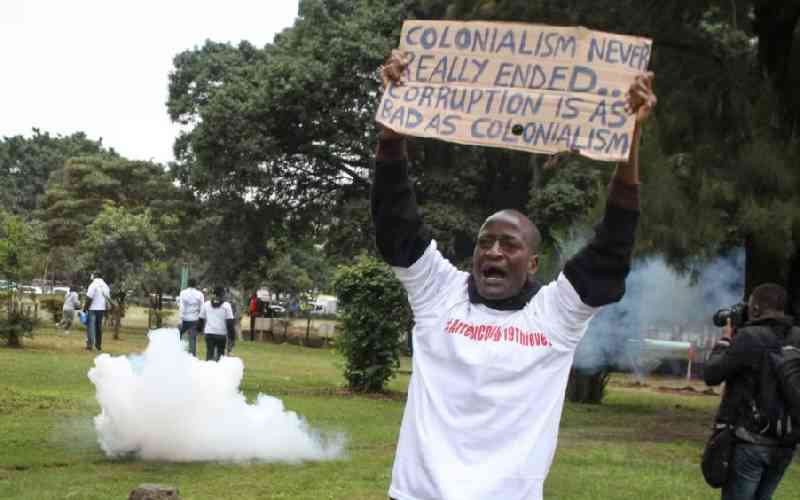By Kamotho Waiganjo
In the last several years, numerous judgements amounting to millions, nay, billions of shillings have been entered against the Government for breach of contract against private entities.
Some of these judgements are entered in international tribunals far removed from the public eye and are quietly settled without local mention.
The typical situation runs thus; a Government department or a parastatal enters into a contract. For reasons that have nothing to do with performance, the contract is cancelled or otherwise breached by technocrats, sometimes at the behest of some political actor.
This is usually so that the same contract can be awarded to some more generous party. In other circumstances, the contract is properly performed and the Government refuses to pay for no legitimate reason.
The offended party sues both for the unpaid monies and damages for breach of contract. Either a sham defence to the claim is filed, or a half-hearted attempt at defending the suit is carried out usually be an uninspired State counsel.
Even where a good defence is put up — and to their credit, many of the State lawyers deserve medals for working hard in difficult circumstances and the facts inexorably point to the Government’s default — the offended party obtains a hefty judgement, complete with colossal amounts in respect of interest. The same is paid keeping everyone happy.
Another scenario relates to the entry of judgements against the Government arising out of claims by torture victims of the dark days of the Kanu regime. For those not in the know, that is the season when scores of Kenyans were brought to court, usually after 6pm, in stretchers after weeks as guests of the State at infamous Nyayo House basement.
They would invariably plead guilty to sedition or other related offences. Many of these torture victims have gone to court and have been awarded judgements sometimes running into millions of shillings for the pain and anguish they underwent. These judgements are of course merited and this country owes such persons much more than money can ever compensate.
The settlements of the contract-related awards and the latter day torture awards bring into question whether it is time to revise the policy of settlements of awards against Government. The review is necessitated by the reality that whereas these judgements are said to be settled by Government, they are actually underwritten by the taxpayer. Civil servants and other Government officers bear no personal responsibility for the fraudulent or criminal acts, which cause these losses.
There are of course legitimate grounds for claims against Government being settled by the taxpayer for acts done in good faith by public servants. But it makes no sense, indeed it is misappropriation of public resources, for the fraudulent or even criminal acts of Government servants to be visited on the citizenry without a corresponding indemnity by the perpetrators. In the case of torture, the actions carried out were criminal acts and were not carried out for the benefit of Kenyans.
Indeed, they were against the interests of the country. The persons who carried out the torture are known and so are those under whose authority they acted. Surely it makes sense to have some level of pecuniary penalty for these devious crimes attached to the persons who bear responsibility. It is important that power and privilege, which is accorded to leaders at decision-making levels, whether in politics or the civil service, carries with it the responsibility to indemnify government when their criminal acts cause loss.
One word on the Constitution. The issue driven character of the discourse so far, compared to 2005, gives me hope Kenya may have made major strides towards democratic maturity.
I pray that when the referendum campaigns go into full gear, the gains we have achieved will not be embezzled. I am sure you have now registered to vote.
 The Standard Group Plc is a
multi-media organization with investments in media platforms spanning newspaper
print operations, television, radio broadcasting, digital and online services. The
Standard Group is recognized as a leading multi-media house in Kenya with a key
influence in matters of national and international interest.
The Standard Group Plc is a
multi-media organization with investments in media platforms spanning newspaper
print operations, television, radio broadcasting, digital and online services. The
Standard Group is recognized as a leading multi-media house in Kenya with a key
influence in matters of national and international interest.
 The Standard Group Plc is a
multi-media organization with investments in media platforms spanning newspaper
print operations, television, radio broadcasting, digital and online services. The
Standard Group is recognized as a leading multi-media house in Kenya with a key
influence in matters of national and international interest.
The Standard Group Plc is a
multi-media organization with investments in media platforms spanning newspaper
print operations, television, radio broadcasting, digital and online services. The
Standard Group is recognized as a leading multi-media house in Kenya with a key
influence in matters of national and international interest.









